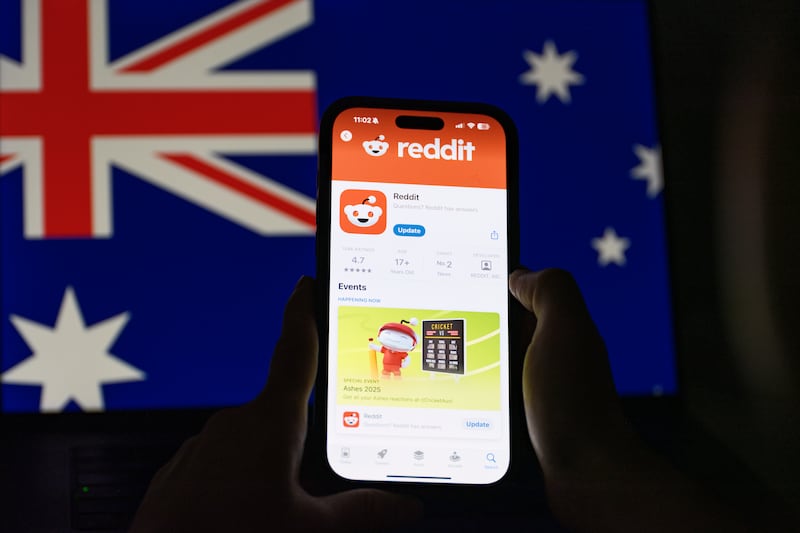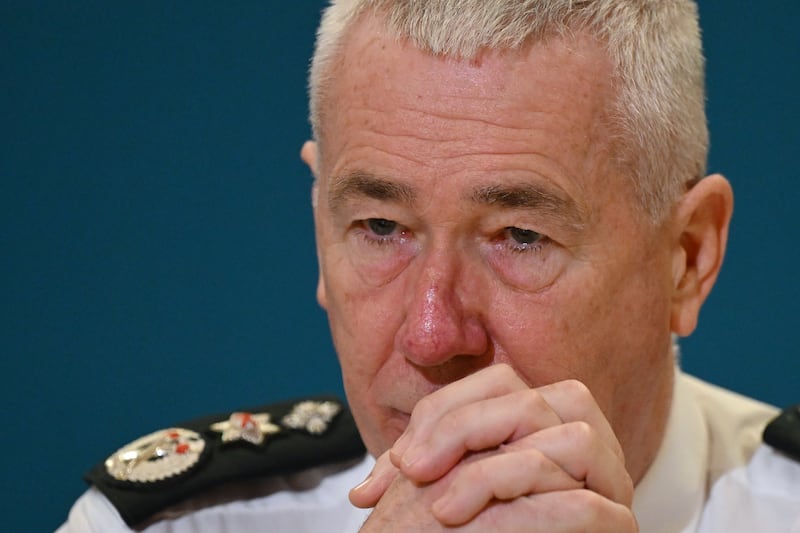I was born to a Palestinian father and Kuwaiti mother, and because of Kuwait’s citizenship laws, where nationalities pass through the father, I was not a Kuwaiti citizen. Because my father was Palestinian, he had a Jordanian passport, so I ended up having a Jordanian nationality, growing up in a different country [Kuwait], with a father that identified differently as well. I remember having this overarching sense of: I know I was born here, I think I’m from here, but I don’t fully feel that I belong here.

When I met my now wife, who is from Mayo, I remember her laughing at my inability to give her a straightforward answer when she first asked me [my nationality]. I’ve always struggled with that side of identity. I’ve been an Irish citizen since 2013, and I still find it hard to call myself Irish. When people ask, I say that I’m an Irish citizen, and I emphasise the citizen part, because the but-where-are-you-really-from brigade might start saying: you’re not really from here. But I’m slowly coming to terms with identifying as Palestinian-Irish.
The biggest memory I have of my childhood in Kuwait was when Iraq invaded Kuwait, in 1990. My family stayed there for the entirety of that conflict. Until the war, I was in Arabic-speaking schools, and then [after the war] my father decided to put us in a private English-speaking school. I remember struggling to fit in. There was a lot of people from various backgrounds. My English teacher back then was Irish – Mr Heslin – he was a great English teacher.
Both my parents were paediatricians, so growing up, I said, I do not want to be a doctor, let alone a paediatrician. I started an Allied Health Sciences course. There was some medical science to it, and I realised I really wanted to do medicine. I went to my father and said, “I’ve changed my mind.” He was always of the approach of: let him decide whatever he wants, we’re not going to push him to do one thing or another. But you could see his face light up.
READ MORE
He had done a diploma in child health in UCD back in the day, so he was familiar with the dynamic in Ireland. He [said]: ‘I’ve been to Ireland. The Irish are great. Their morals, their values, are actually very close to ours. So I want you to go to Ireland.’
My own first impressions were interesting because when I was doing my Leaving Certificate in the Institute of Education, they segregated Arabs from the Irish. The main reason was for language. A lot of people coming from the Middle East had almost zero English. But I came fully fluent. I remember begging my teachers to move me to the Irish classes. I managed to succeed in the sciences, but they kept me in the Arabic ones for English and maths. As a result, I didn’t get to meet a lot of Irish people.
I only really got the experience of the Irish when I started university in Trinity. I was blown away by how friendly everybody was, and how you are treated just like everybody else. Everything until then was defined by where I was from, but the first time I did not experience this was when I came to Ireland. Although there’s a lot of talk about an increase in racist sentiment in Ireland, I really still think that, in general, Ireland is one of the least racist places I’ve been to.
The first time I didn’t feel, I guess, shame for being Palestinian was in Ireland, because of the level of support the Irish have for the Palestinian cause. I felt that my Palestinian identity was not something to hide. I think people that have been colonised will have sympathy for people in a similar situation, but what I also like is that [Irish people] get the nuance. They get that it is not a purely one-sided story. They look at it from a humanistic point of view, and a human-rights point of view.
I feel that we have the best doctors in the world in Ireland. The biggest challenge we have is our infrastructure
I’m a neonatologist, so I work with very premature babies. It puts you at the forefront of what’s possible in sustaining life, especially at the limits of viability. But what really drew me to the speciality was the human side. The highlight of my career was last month: I got a random message on Instagram from a mother with a photo of her daughter heading off to her debs. That daughter was the first baby, born at 24 weeks, weighing 500g, who I looked after, 19 years ago.
I feel that we have the best doctors in the world in Ireland. The biggest challenge we have, though, is our infrastructure. We really need to invest in state-of-the-art maternity [infrastructure] and unfortunately, I don’t see that happening in the next five to 10 years.
What prompted me to start The Baby Tribe podcast was the fact that it is really hard to find unbiased, evidence-based information to help parents raise their kids – both information on general parenting, but also on the medical aspects of it. What I think is unique about The Baby Tribe is that yes, we bring parenting and relatable content, but we also have huge access to medical experts that are happy to come on and share their experience. We’ve covered a huge amount about parenting in modern Ireland. Me and [my co-host and wife, obstetric anaesthetist], Anne [Doherty], always bring in the cultural differences, especially in how we were parented. We don’t shy away from tackling conversations that may be a bit difficult [like] the state of maternity healthcare, home births or vaccinations, but we always provide unbiased, evidence-based information.
In conversation with Niamh Donnelly. This interview, part of a series, was edited for clarity and length. Prof Afif El-Khuffash is a consultant paediatrician at the Rotunda Hospital
![Prof Afif El-Khuffash: ‘When I met my now wife, who is from Mayo, I remember her laughing at my inability to give her a straightforward answer when she first asked me [my nationality]’](https://www.irishtimes.com/resizer/v2/MKA4G7GGAJFIJLSWOZN26J76LY.jpg?auth=7b755c2dd3cf6df145cf2f29728cfad98cc1c68c778b3d7c62b10da5c686e7a5&smart=true&width=1024&height=768)


















